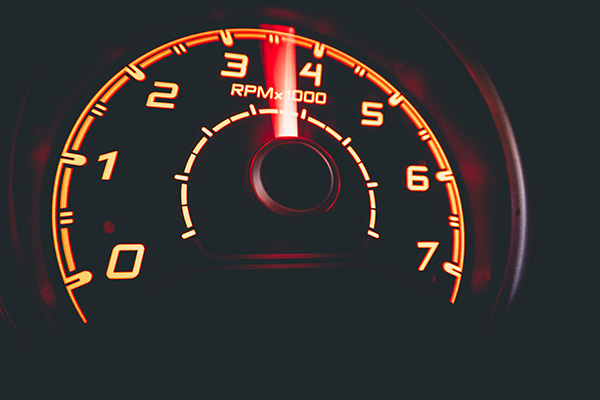
If your car used to jump forward the moment you pressed the gas but now feels like it’s dragging, something under the hood may need attention. Slow or hesitant acceleration is more than just frustrating. It can point to issues with the fuel system, air intake, ignition, or even the transmission. Finding the cause early can help you avoid expensive repairs and keep your car running safely and smoothly.
Here are five common reasons your car might be struggling to pick up speed.
1. Clogged Fuel Injectors
Fuel injectors spray fuel into the engine so it can burn evenly and efficiently. Over time, those small nozzles can get clogged with carbon buildup or residue from low-quality gas. When that happens, the engine struggles to get the fuel it needs, especially when you accelerate quickly.
You might notice hesitation or a rough response when pressing the pedal. Cleaning or replacing the injectors can often bring your car’s power back and smooth out acceleration.
2. Dirty or Failing Mass Air Flow Sensor
Your engine’s computer depends on the mass air flow (MAF) sensor to measure how much air is entering the intake. If the sensor is dirty or malfunctioning, it can send the wrong information, throwing off the air-fuel ratio. That imbalance leads to sluggish acceleration and uneven performance.
If your car feels lazy when pulling away from a stop or climbing a hill, a faulty MAF sensor might be the reason. In most cases, cleaning or replacing the sensor restores normal performance.
3. Worn Spark Plugs
Spark plugs are small but vital. They ignite the air-fuel mixture in the engine cylinders, and if they’re worn or fouled, the combustion process becomes incomplete. That means less power and slower throttle response.
Replacing spark plugs is a simple, low-cost fix that can make a big difference. If your car has been running rough or feeling underpowered, this is one of the first things to check.
4. Transmission Problems
The transmission controls how power moves from the engine to the wheels. If it slips, hesitates, or shifts at the wrong time, you’ll feel that delay when accelerating. Old or low transmission fluid can also make the gears sluggish to engage.
Common signs include high engine revs without a matching increase in speed, jerky shifts, or inconsistent acceleration. Depending on what’s found, a fluid flush or transmission service may be needed.
5. Restricted Exhaust System
Your engine needs to push out exhaust gases freely to maintain power. When something in the exhaust system is blocked, like a failing catalytic converter or a damaged muffler, it can create back pressure that chokes performance.
A restricted exhaust often feels like the car is “holding back” when you accelerate. You might also notice a drop in fuel economy or a sulfur-like smell. If that sounds familiar, the exhaust system should be inspected as soon as possible.
Other Possible Causes
Sometimes the cause isn’t just one component. A dirty air filter, vacuum leak, or weak throttle body can all play a part. Even low-quality fuel or water in the gas tank can cause temporary sluggishness.
If your car isn’t responding the way it used to, a full diagnostic check can pinpoint the issue and prevent bigger problems down the road.
Acceleration and Performance Repairs in Walnut Creek, CA at Roesbery Car Care
If your vehicle feels slow or unresponsive, our technicians at Roesbery Car Care in Walnut Creek, CA can help. We’ll inspect the fuel, ignition, and transmission systems, clean or replace worn parts, and make sure everything is tuned for proper performance.
Stop by for an inspection today and let us help you get your car’s power and responsiveness back where it should be.